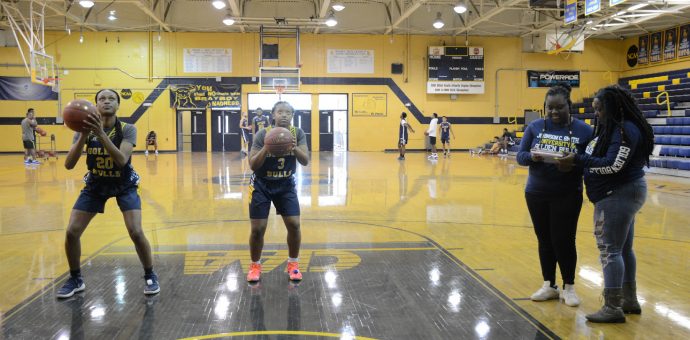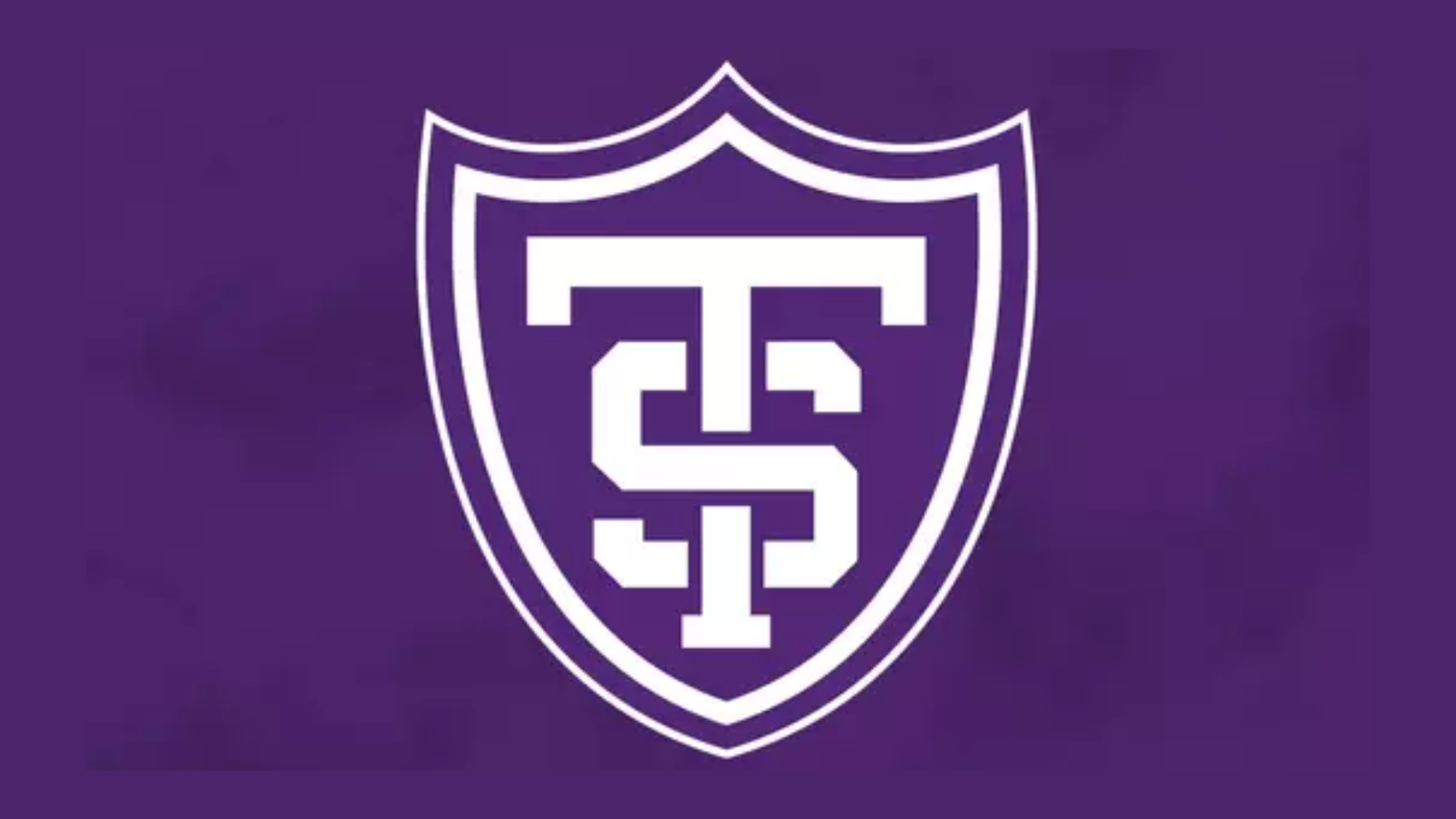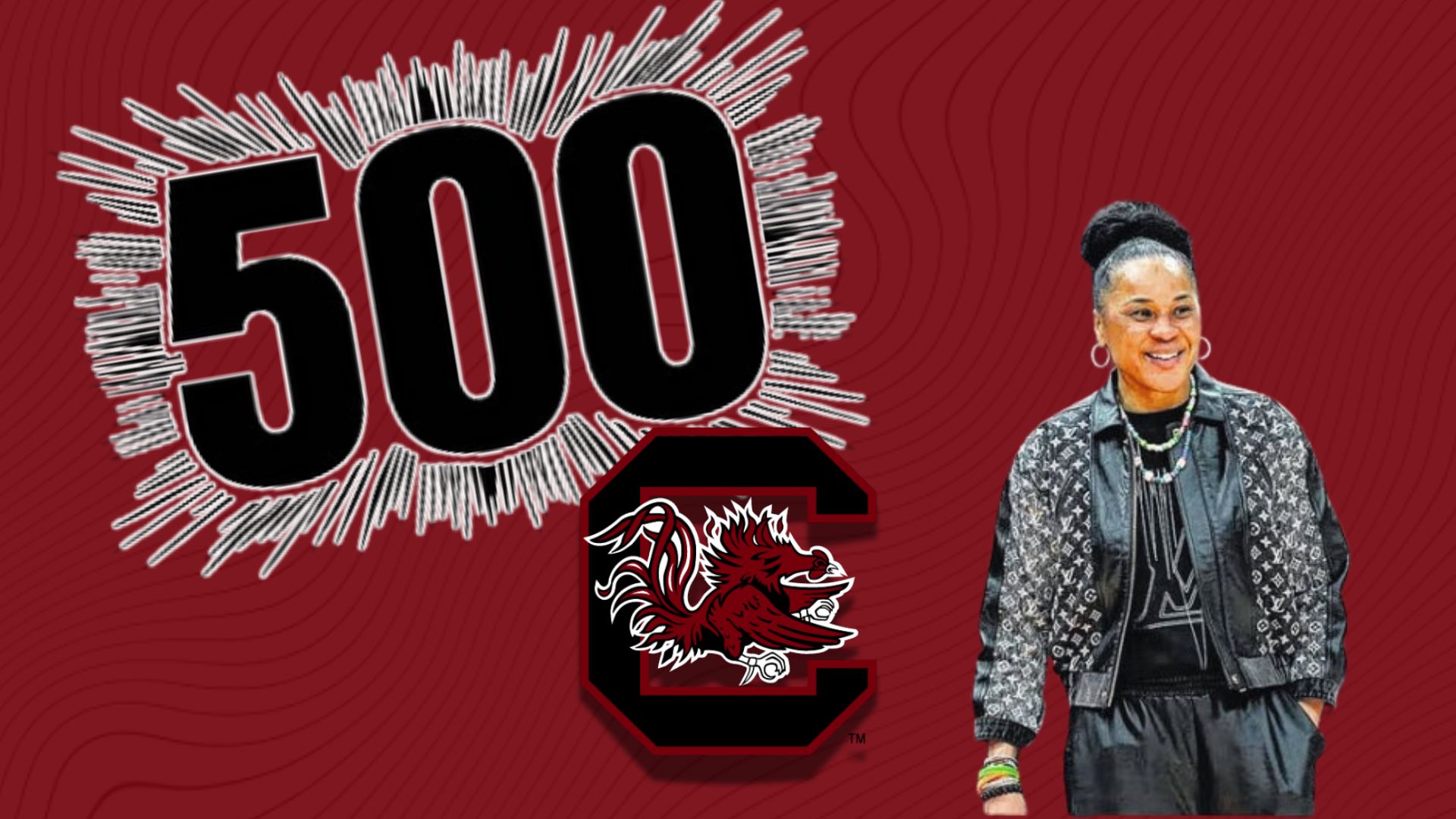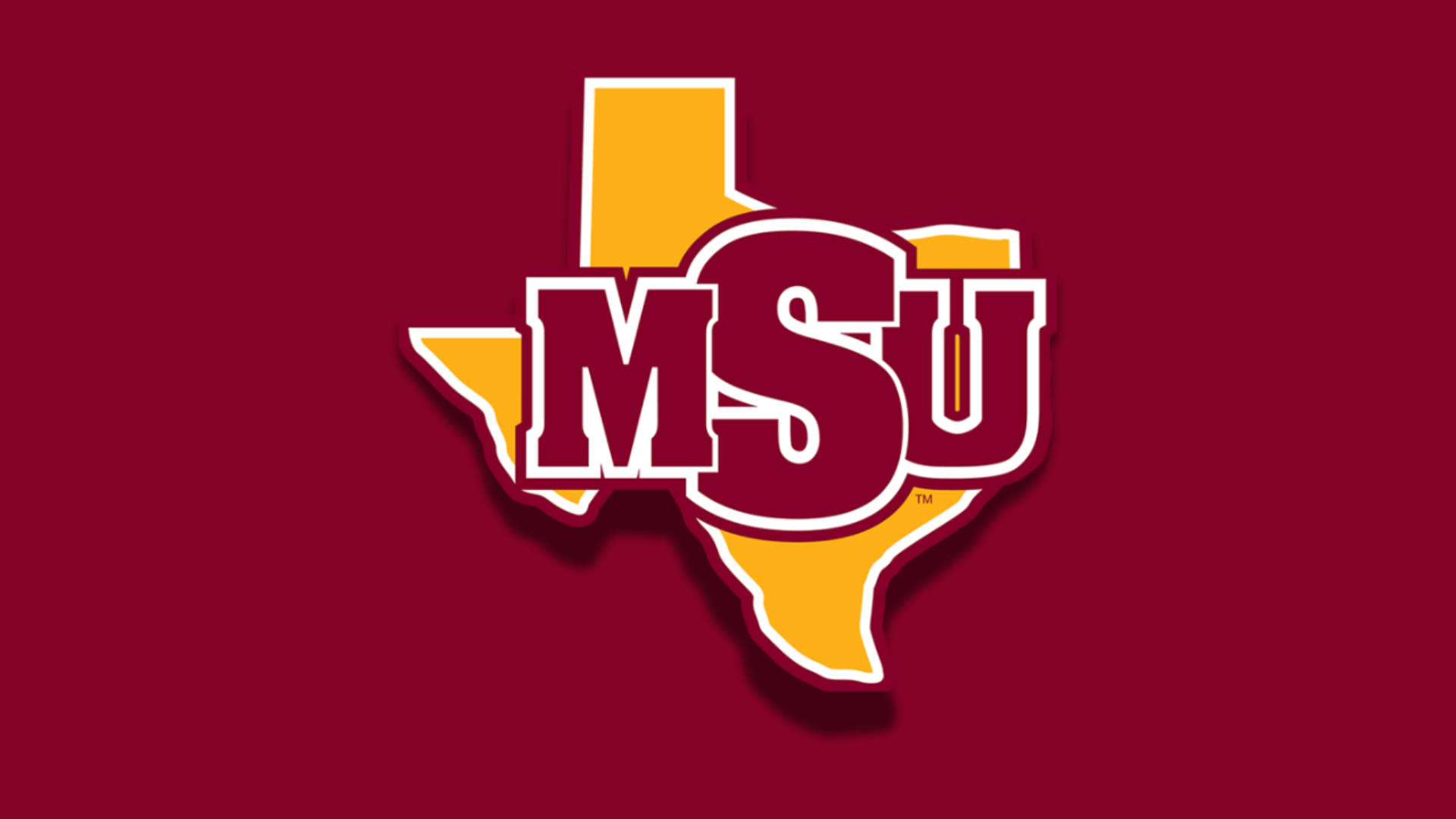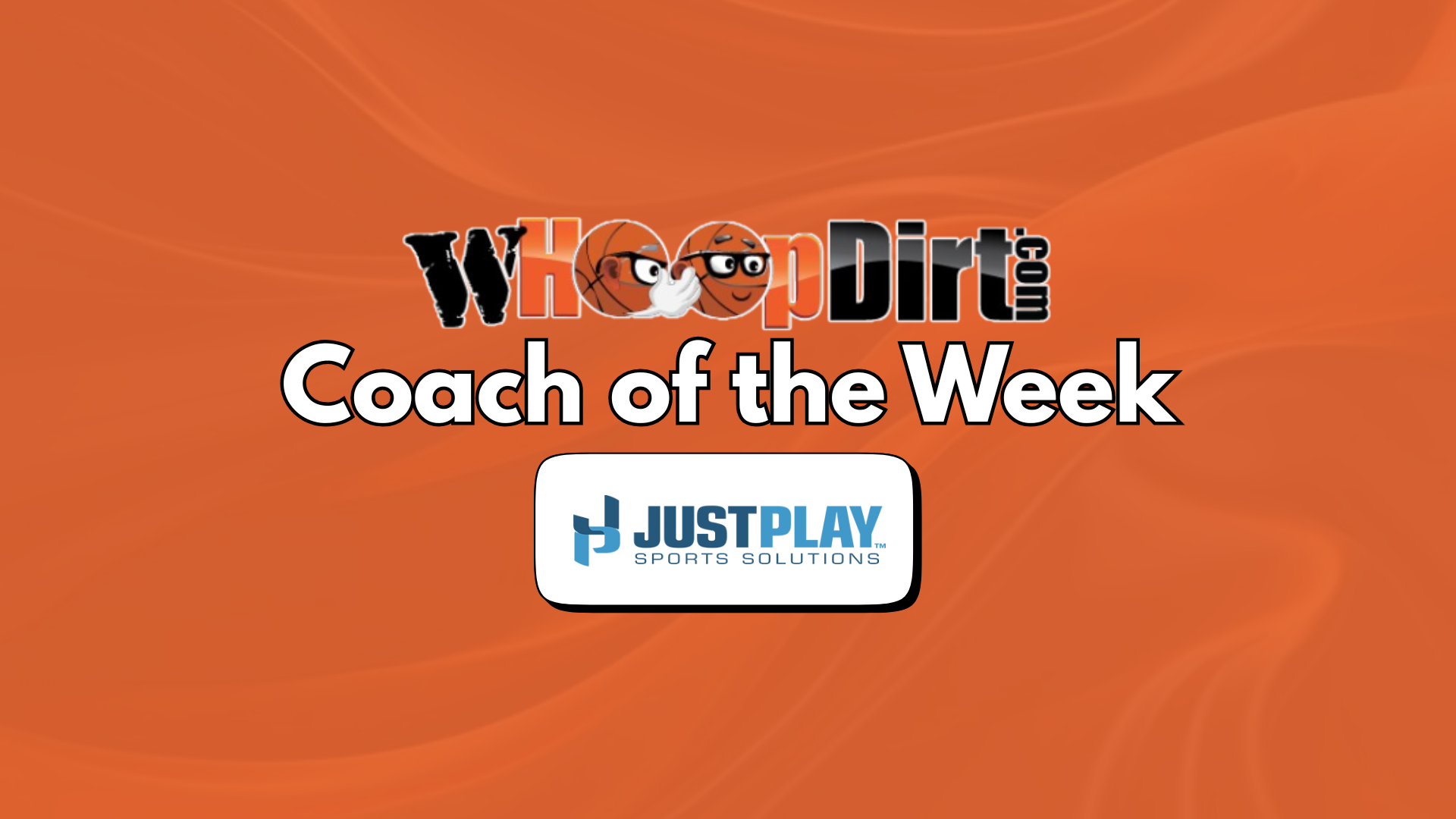By 2022, the sports analytics market is expected to skyrocket to $4 billion. Yet even as top international players are duking it out for industry supremacy, an assistant professor of computer science at Johnson C. Smith University in Charlotte, N.C. is poised to make just as big an impact on the data-charged future of sports.
Dr. Felesia Stukes differentiates herself from traditional computer scientists by putting storytelling at the center of her work. “That’s what makes data science so unique,” she says. “You can’t just throw numbers at your target audience. That’s statistics. You have to be able to tell a story with the data.” And she believes— correctly — that students across different majors at JCSU stand to benefit from having a data science skill set.
When Dr. Stukes attended the National Society of Blacks in Computing Conference in the summer of 2017, she discovered the perfect tech tool for making data science accessible to one and all: ShotTracker, a sensor-based system beloved by D1 college basketball programs that instantly delivers 70+ real-time stats and analytics to an easy-to-use-app. Featuring shot charts and zone maps, ShotTracker makes it easy to tell stories about data that enhance team performance and drive competition.
Dr. Stukes immediately recognized ShotTracker’s educational potential, envisioning it as the cornerstone of a new data science minor at JCSU. Now, supported by a prestigious grant from the National Science Foundation, Dr. Stukes, along with seven hand-picked JCSU students, a.k.a. The DATA Bulls, are turning her pioneering vision into reality with a ShotTracker-powered pilot program designed to take computer science out of the classroom and into the real world.
“Math and science can cause anxiety and lead to avoidance for some students,” Dr. Stukes says. “A lot of the time, you’re in a computer lab environment in front of PCs, which makes things more intense.” ShotTracker’s on-the-go app changes that equation. The DATA Bulls started charging ahead the moment the sensors got installed in the rafters of JCSU’s basketball gym in September. “We consider it a partnership, because the teams will use ShotTracker during practice and we use the data to analyze their performance. The idea is to engage students traditionally not interested in data science or, on the flip side, athletics,” she said.
To re-enforce her program’s real-world aspirations, Dr. Stukes encourages the students to think of JCSU’s athletic department as the “client.” Beyond being responsible for ensuring that the system is working properly and that all the sensor-enabled balls are fully charged, the DATA Bulls will interact directly with players and coaches on JCSU’s men’s and women’s basketball teams, using ShotTracker-powered stats and analytics to improve their on-court performance.
“The hands-on, real-world applications make a huge difference in our students’ understanding,” Dr. Stukes says. “Using visuals on the iPad, we can talk to the coaches and players, increasing interactions outside the classroom. They’re learning at a faster speed than if they were looking at a PC screen and attempting to understand the impact.”
For one DATA Bull in particular — a senior computer science & information systems major named Amyr, who’s determined to make his mark on the sports analytics field — this program is a “dream come true,” Dr. Stukes says. “He plays basketball in his spare time. He’s well-versed in fantasy leagues. And he’s doing a senior project based on NBA stats. This experience is going to make him an excellent job candidate when he graduates.”
The benefits of being a DATA Bull certainly aren’t lost on Amyr. “For a while, I struggled to figure out what I wanted to do after graduation,” he says. “When Dr. Stukes presented this program, it pointed me in the right direction. I’m super-excited about it. Learning about a new system like ShotTracker while collaborating with others should be a very fun experience and lead me to new opportunities in the future.”
As just one of more than a hundred recognized Historically Black Colleges and Universities (HBCUs), JCSU represents a particularly important staging ground for Dr. Stukes’ innovative use of ShotTracker. The program is unique among HBCUs, and Stukes sees it eventually broadening to track information such as sleep data, exercise science, and health and human performance. Minorities are underrepresented in the computer science field, yet as Dr. Stukes points out, those with computing skills are among the highest paid. It’s her passion as an educator to help close the gaps. “There’s a lot of motivation behind this program,” she says, “especially with a diverse student population.”
Though she does not consider herself an athlete, Dr. Stukes is both the wife and the daughter of former college basketball players. Her now deceased father, she says, “would’ve been blown away by ShotTracker. He never would’ve left the gym.” Of the few remaining old-schoolers who dismiss analytics as a passing fad, Dr. Stukes says, “Those people sound like they’re coaching from their couch. For coaches who are actually interested in winning, ShotTracker is empowering. You’re still using your eye, still using your mind. But you can use this tool to add to your expertise.” Like father, like daughter.


